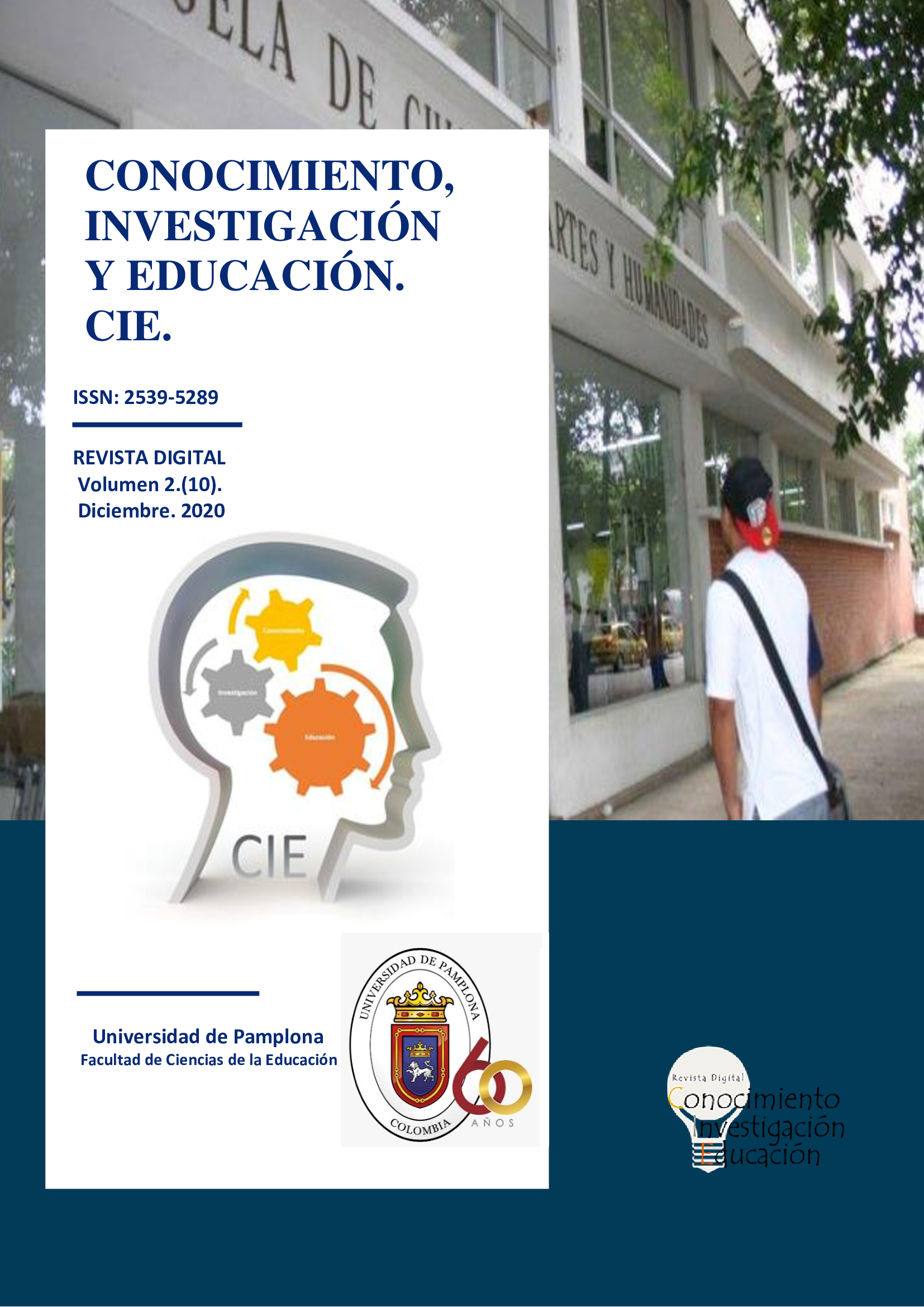Psychopedagogical Approach on the Reading Comprehension of Chávez-Zamora in Secondary Education Students
Keywords:
production, textual typology, competence, communication, strategiesAbstract
The purpose of the research was to analyze the incidence of José Chávez Zamora's psychopedagogical approach to reading comprehension as a strategy for the development of understanding and interpretation of texts. The research focus was qualitative research, under the participatory action-research model, the key informants were twenty (20) eleventh-grade students from Colegio Pablo VI de Valledupar. The results obtained were evidenced by reading-creative strategies in an interactive context of dialogues and group discussions that promoted "guided learning" to stimulate metacognitive skills. Concluding that through the intervention of the investigation, a significant improvement in the processes of interpretation and textual comprehension by the students can be appreciated
Downloads
References
Álvarez, J. (2010). La evaluación psicopedagógica. Temas para la Educación. Revista Digital para Profesionales de la Enseñanza. No. 7, marzo 2010.
Andrade, J. & Bracho, K. (2019). Concepción Docente frente a la Formación Integral de los Educandos en Hogares Comunitarios. CIE. Vol. 2. (8), 38-53.
Ardila, A. & Bracho, K. (2020). Estrategias de comprensión e interpretación de textos argumentativos en estudiantes de educación superior. Revista Electrónica en Educación y Pedagogía, 4(6), 56-68. doi: http://dx.doi.org/10.15658/rev.electron.educ.pedagog20.05040605
Bracho, K. (2012). Cultura investigativa y producción científica en universidades privadas del municipio Maracaibo del estado Zulia. REDHECS. Vol. 7. pp. 50-69.
Chávez-Zamora, J. (2006). Enfoque Psicopedagógico de la Comprensión Lectora, I Congreso Internacional de Educación, Encinas: Balance de las Reformas Educativas Y Proyecto Educativo Nacional. Facultad de Psicología de la Universidad Nacional Mayor de San Marcos y Centro Peruano de Audición, Lenguaje y Aprendizaje (CPAL).
Chávez-Zamora, J. (2006). Creación De Zonas De Desarrollo Del Metapensamiento Con La Escritura Productiva O Creativa. Revista IIPS. Facultad E Psicología UNMSM. ISSN: 1560 - 909X VOL 9 - Nº 1 – 200 P. 101-10
Vega y Cuetos, (1999). Psicolingüística del español: Estructuras y Procesos. Psicología Cognitiva. Editorial Trotta. Ed. 1. ISBN: 978-84-8164-303-9.
Freire, P. (1970). Pedagogía de los oprimidos. Nueva York: Continuum.
González, R (2000). Temas de Psicología Cognitiva, Cedeis, Lima Perú
Husserl, E. (1997). El artículo “fenomenología”. En: Invitación a la fenomenología. Barcelona: Paidós, 35-73.
Jiménez, J. y Ortiz, M. (2000). Metalinguistic awareness and reading acquisition in the Spanish language. Spanish Jorirnal of Psychology, 3 (I), 37-46.
Johnston, P. (1989). La evaluación de la comprensión lectora. Un enfoque cognitivo. Machado Grupo de Distribución. España. Edición 1. Pág. 126.
Luceño, J. (1994): Las dificultades lecto-escritoras en el aula. Sevilla. INATED.
Martí, J. (2002). La investigación-acción-participativa: Estructuras y fases. In T. Rodríguez Villasante, M. Montañez, & J. Martí (Coords.), La investigación social participativa: Construyendo ciudadanía (Vol. 1, pp. 79-123).
Martínez, J. (2013). Metodologías de la investigación cualitativa. Silogismo más que conceptos, 8 (1), 27-38.
Mayor, J., Suengas, A. y Gonzáles, J. (1995): Estrategias metacognitivas. Aprender a aprender y aprender a pensar. España. Síntesis.
Pinzás, (1997). Lectura y Metacognición. Fondo Editorial de la Pontificia Universidad Católica del Perú.
Ramírez, E. (2011). La investigación cualitativa en educación. Balance y retos en el contexto colombiano Revista Interamericana de Investigación, Educación y Pedagogía, vol. 4, (1), pp. 81-91.
Rivas, L. (2015). Metodología para el desarrollo de la comprensión lectora en el proceso enseñanza-aprendizaje. Revista Dominio de la Ciencia Vol. 1, núm. 1, 2015, pp. 47-61.
Selener, D. (1997). Participatory action research and social change. NY: Cornell University Action Research Network
Downloads
Published
How to Cite
Issue
Section
License
Copyright (c) 2020 CONOCIMIENTO, INVESTIGACIÓN Y EDUCACIÓN CIE

This work is licensed under a Creative Commons Attribution-NonCommercial-NoDerivatives 4.0 International License.










